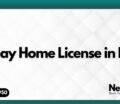
Dubai, a global financial hub, has become a prime destination for entrepreneurs seeking to enter the forex trading industry. A forex trade license in Dubai allows individuals and companies to legally operate foreign exchange businesses, capitalizing on the city’s dynamic economy and investor-friendly policies. This article provides a detailed guide to securing a forex trade license, covering requirements, processes, costs, and benefits. Written in a human tone, this guide will help you navigate Dubai’s regulatory landscape and establish a thriving financial services business.
What is a Forex Trade License?
A forex trade license is a legal authorization issued by Dubai authorities, allowing businesses to engage in foreign exchange trading, brokerage, or advisory services. Regulated by bodies like the Dubai Financial Services Authority (DFSA) for free zones or the Department of Economic Development (DED) for mainland operations, this license ensures compliance with UAE financial regulations. It enables entrepreneurs to offer forex trading platforms, manage client investments, or provide trading services in Dubai’s competitive market.
Why Choose Dubai for Forex Trading?
Dubai’s strategic location, tax-free environment, and robust financial services infrastructure make it an ideal hub for forex trading. The city attracts global investors with its stable economy, advanced technology, and proximity to major markets in Europe, Asia, and Africa. The DFSA’s stringent regulations enhance investor confidence, while Dubai’s cosmopolitan population drives demand for currency trading and investment opportunities.
Types of Forex Trade Licenses in Dubai
Dubai offers different forex trade licenses based on your business model and operational preferences. Understanding these options is crucial for selecting the right license.
Mainland Forex Trade License
A mainland forex trade license, issued by the DED, allows you to operate anywhere in Dubai and target clients across the UAE. This license is ideal for businesses offering forex trading platforms or advisory services to a broad market. It requires compliance with UAE financial laws and may involve a local sponsor for non-residents.
Free Zone Forex Trade License
Free zone licenses, regulated by authorities like the DFSA in the Dubai International Financial Centre (DIFC), offer 100% foreign ownership, tax exemptions, and full profit repatriation. These licenses are suitable for businesses targeting international clients or operating trading platforms globally. However, operations are restricted to the free zone unless additional approvals are obtained.
Brokerage License
A brokerage license allows you to act as an intermediary between forex traders and the market, earning commissions on trades. This license, available in both mainland and free zones, is ideal for businesses providing trading services or managing client portfolios. It requires adherence to strict financial regulations to protect investors.
Steps to Obtain a Forex Trade License in Dubai
Securing a forex trade license involves a structured process to ensure compliance with Dubai’s regulations. Follow these steps for a smooth setup.
Step 1: Define Your Business Activity
Clearly outline your business activity, such as forex trading, brokerage, or advisory services. This determines the specific license type and regulatory requirements. Submit your business plan to the DED or DFSA, detailing your target market and operational model.
Step 2: Choose a Trade Name
Select a trade name that complies with Dubai’s naming guidelines, avoiding offensive or religious terms. Submit the name for approval through the DED or free zone portal to ensure availability and compliance.
Step 3: Apply for Initial Approval
Submit an application for initial approval to the DED (for mainland) or DFSA (for free zones). Provide documentation, including your passport, visa, and business plan. This step confirms that your forex trading activity is permissible under UAE laws.
Step 4: Secure Office Space
You’ll need a physical office or flexi-desk in Dubai to operate legally. For mainland licenses, lease an office anywhere in the city. In free zones like the DIFC, office spaces are provided within the zone. Ensure your office meets regulatory standards for financial services.
Step 5: Obtain Regulatory Approvals
For free zone licenses, the DFSA requires proof of compliance with financial regulations, including anti-money laundering (AML) and know-your-customer (KYC) policies. Mainland businesses may need additional approvals from the Central Bank of the UAE. Submit financial projections and compliance plans as required.
Step 6: Final License Application
Once approvals are secured, submit your final application with all documents, including tenancy contracts, Emirates ID, and proof of capital (if required). Pay the license fee, and the DED or DFSA will issue your forex trade license within 5–15 working days.
Costs of a Forex Trade License in Dubai
The cost of obtaining a forex trade license varies based on the license type and location. Below is a breakdown of key expenses.
License Fees
- Mainland License: AED 15,000–25,000 annually, depending on business activities.
- Free Zone License: AED 20,000–35,000, including DFSA fees and office costs.
- Brokerage License: AED 18,000–30,000, based on the scope of services.
Additional Costs
- Office Rental: Mainland offices cost AED 20,000–50,000 per year; free zone flexi-desks start at AED 10,000.
- Compliance Costs: AML and KYC systems, audits, and training cost AED 5,000–15,000.
- Visa Fees: AED 3,000–5,000 per employee visa for staff or partners.
- Capital Requirements: The DFSA may require proof of minimum capital (e.g., AED 500,000 for brokerage services).
Key Requirements for a Forex Trade License
Meeting regulatory requirements is essential for a successful forex trade license application.
Legal Documentation
You’ll need a valid passport, Emirates ID, and a No Objection Certificate (NOC) from a sponsor (for non-residents on mainland licenses). Companies require a DED or free zone trade license and a memorandum of association.
Compliance with Financial Regulations
Forex trading businesses must adhere to AML and KYC regulations to prevent fraud and money laundering. This includes implementing robust client verification systems and regular audits.
Qualified Staff
Your business must employ qualified professionals, such as licensed forex traders or financial advisors, to ensure compliance with DFSA or Central Bank standards. Staff may need certifications in financial services.
Benefits of Operating a Forex Trading Business in Dubai
A forex trade license offers numerous advantages for entrepreneurs in Dubai.
Access to a Global Market
Dubai’s strategic location connects you to traders in Europe, Asia, and the Middle East. Free zone licenses allow you to serve international clients without restrictions, boosting your business opportunities.
Tax Advantages
Dubai’s tax-free environment means no corporate or income taxes on forex trading profits, maximizing returns for your financial services business.
Robust Regulatory Framework
The DFSA and Central Bank provide a transparent and secure environment, enhancing investor trust in your trading platform or services.
Challenges of Operating a Forex Trading Business in Dubai
Despite the benefits, forex trading in Dubai comes with challenges.
Strict Financial Regulations
Compliance with DFSA or Central Bank rules requires ongoing effort, including regular reporting and audits. Non-compliance can result in hefty fines or license revocation.
High Competition
Dubai’s forex trading market is competitive, with global and local firms vying for clients. A strong digital marketing strategy and unique offerings are essential to stand out.
Capital Requirements
Free zone licenses, especially in the DIFC, may require significant capital reserves, which can be a barrier for startups or small businesses.
Tips for a Successful Forex Trading Business in Dubai
To thrive in Dubai’s forex trading market, consider these strategies.
Invest in Technology
Use advanced trading platforms with real-time data, charting tools, and mobile apps to attract clients. Ensure your platform is secure and user-friendly.
Focus on Compliance
Work with legal experts to maintain AML and KYC compliance. Regular training for staff ensures adherence to financial regulations.
Leverage Digital Marketing
Optimize your website with SEO keywords like “forex trade license in Dubai” and use social media to reach global traders. Partner with business setup services for market insights.
Conclusion
Obtaining a forex trade license in Dubai is a gateway to tapping into one of the world’s most dynamic financial services markets. By navigating the licensing process, meeting DFSA or DED requirements, and implementing effective strategies, you can build a profitable forex trading business. Dubai’s investor-friendly policies and global connectivity make it an ideal destination for currency trading. Partnering with business setup services in Dubai, UAE, can streamline the process, ensuring compliance and success in this competitive industry.
FAQs
What is a forex trade license in Dubai?
A forex trade license allows businesses to offer foreign exchange trading, brokerage, or advisory services in Dubai, regulated by the DFSA or DED.
How long does it take to get a forex trade license?
The process takes 2–6 weeks, depending on the license type, regulatory approvals, and document submission.
Can foreigners apply for a forex trade license in Dubai?
Yes, foreigners can apply for a license, with 100% ownership in free zones like the DIFC. Mainland licenses may require a local sponsor.
What are the costs of a forex trade license in Dubai?
Costs range from AED 15,000–35,000 annually, plus office rental, compliance, and visa fees.
Do I need a physical office for a forex trading business?
Yes, a physical office or flexi-desk is required in Dubai for both mainland and free zone forex trade licenses.








